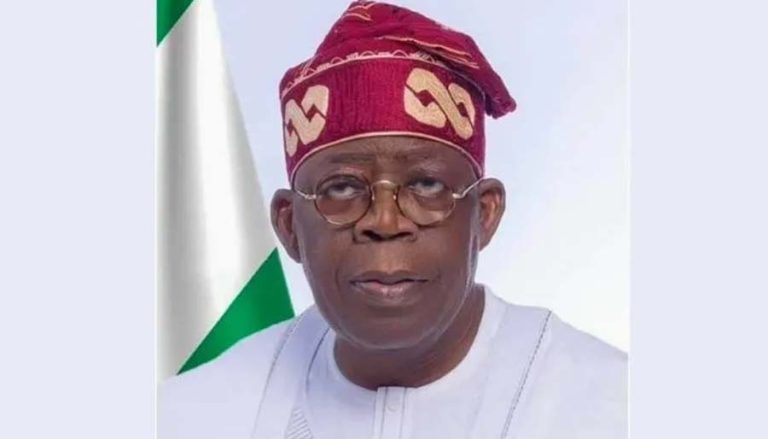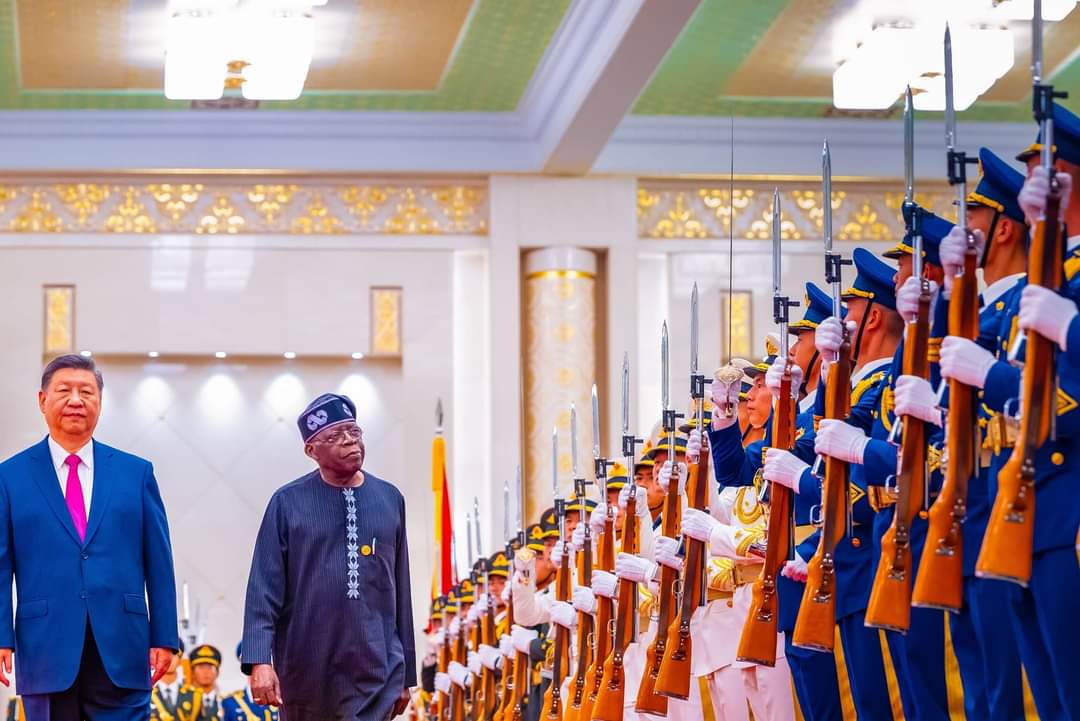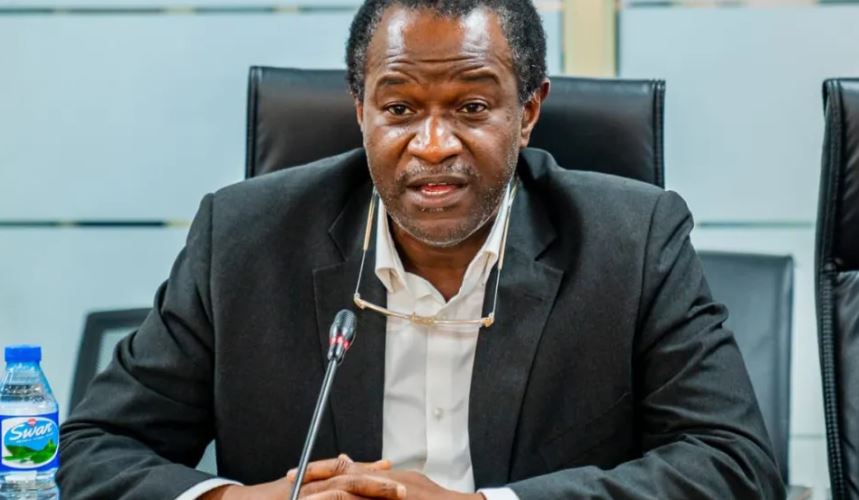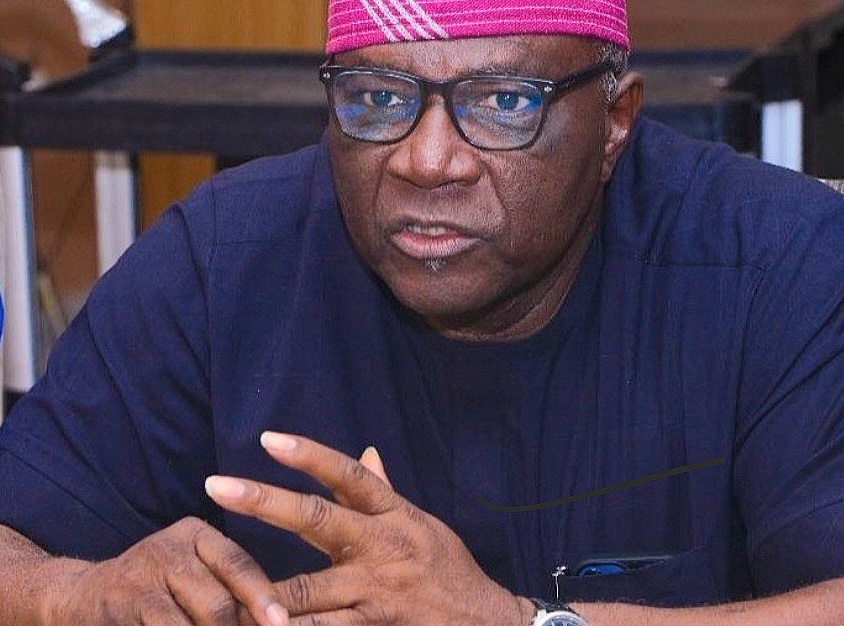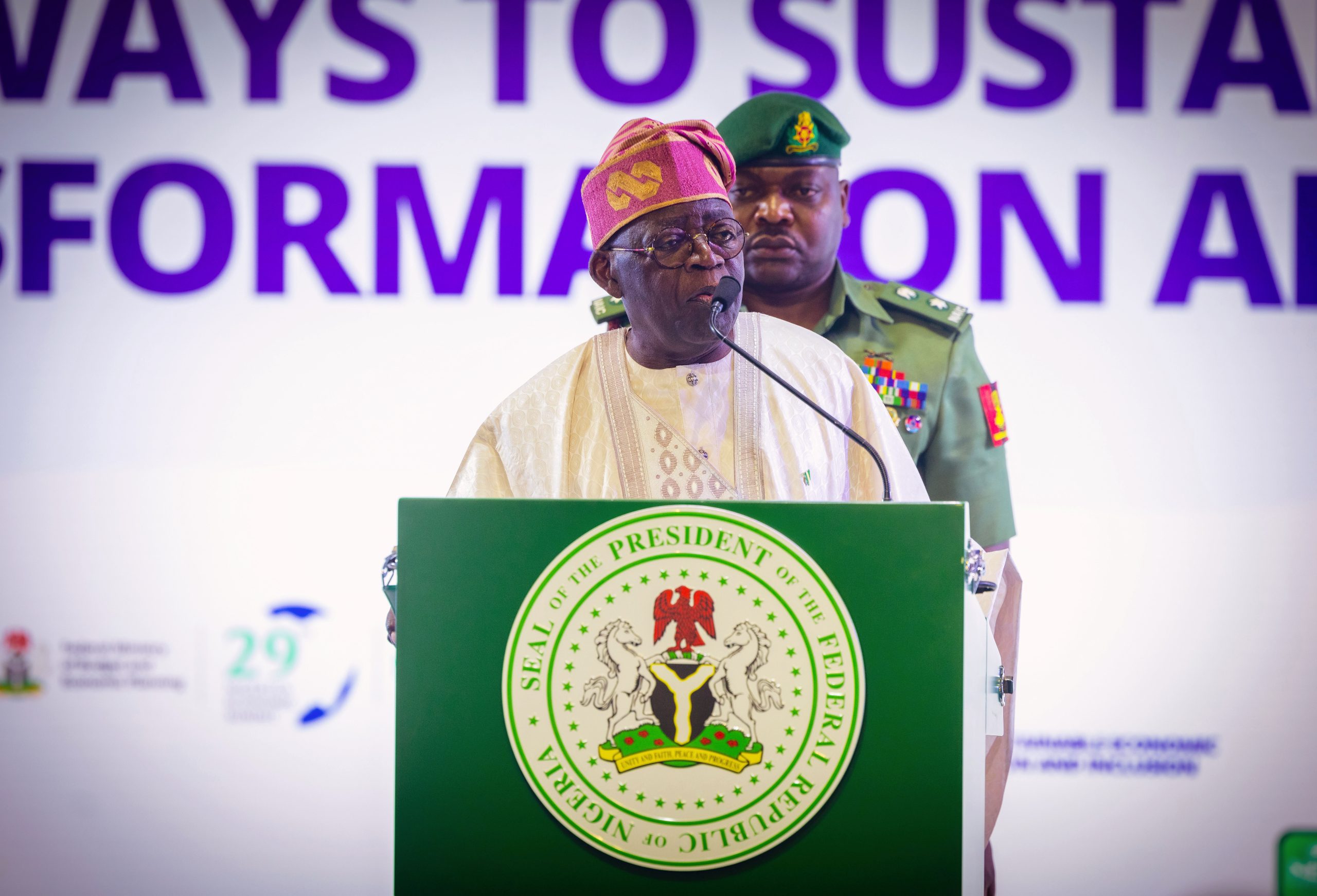Opinions
Three Quick Powerful Action Steps to Re-unite and Rebuild Trust
after the 2023 presidential election in Nigeria have left deep scars that continue to threaten the unity and progress of the country.
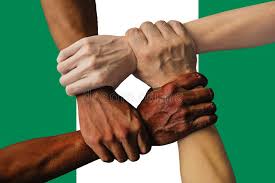
By Ishola Ayodele
The best word to describe the state of Nigeria right now ‘Kupenga’. ‘Kupenga’ is a word from the Shona language of Zimbabwe, which means “to be on the verge of breaking or falling apart. We are sitting on a keg of gun powder waiting to explode if critical issues are not strategically addressed as the wounds of ethnic and religious divisions brought about by the rhetoric, actions and inactions of politicians before, during and after the 2023 presidential election in Nigeria have left deep scars that continue to threaten the unity and progress of the country. It is essential to heal these wounds and rebuild trust among different communities to move the country forward. The incoming administration of Bola Ahmed Tinubu has a crucial role to play in this regard. In order to unite the country, gain the trust of the people, and foster cooperation, the administration must take the following quick decisive steps to address the key challenges facing the country so as so create the needed understanding and acceptance for its policies and programs.
- Acknowledging and Addressing the concerns of the aggrieved youth and assuring them that their voices will be heard.
The Police brutality towards young people is a serious issue that cannot be ignored by any responsible government. It is a violation of human rights and can have devastating consequences on the lives of young Nigerians. Not handling the #EndSARS protests in 2020 well enough by the PMB administration was the root cause of the disaffection between the government and the youth and not addressing the youth’s concerns frontally has led to lack of trust between the administration and the youths which has now graduated to full blown hatred.
The famous African- American Rapper once asked a pertinent once asked a pertinent question. “You were put here to protect us. But who protects us from you?”
The incoming administration of Bola Ahmed Tinubu need to immediately address the police brutality of the Nigerian youth, through a national broadcast by first of all acknowledging it exist and that the military exhibited an unnecessary high-handedness in handling the #EndSARS protests in 2020, apologies to the youth and provide justice and compensations for victims of police violence nationwide and finally assuring them that their lives matter to you and you are ready to protect them against any police violence by implementing police reforms that ensure that the police are held accountable for their actions and that they are trained to treat citizens with respect and dignity.
Furthermore, the government should prioritize the creation of job opportunities for young people, who are the most affected by unemployment. This can be done by investing in sectors that have the potential to create jobs such as agriculture, technology, and renewable energy. The government should also provide financial assistance to young entrepreneurs in the form of grants or soft loans, which will enable them to start and grow their businesses.
It is unacceptable that young people are not included in the decision-making process that affects their lives. The government should create avenues for youth participation in decision-making by establishing youth councils at the local and national levels. These councils will enable young people to voice their opinions and contribute to policy formulation and implementation. Several studies have demonstrated the positive impact of youth empowerment and inclusion on national development. For example,
- The World Bank’s report titled “Youth Employment in Sub-Saharan Africa” notes that youth empowerment and inclusion in the workforce can lead to increased productivity, innovation, and entrepreneurship.
- The International Labour Organization’s report titled “Global Employment Trends for Youth 2020” reveals that empowering young people through education, skills training, and job creation can have significant positive impacts on economic growth and development.
- The United Nations Development Programme’s report titled “Youth Empowerment for Sustainable Development” shows that when young people are included in decision-making processes, they can contribute to more effective and sustainable development outcomes.
These studies demonstrate the fact that empowering and including youth in national development efforts is critical for achieving sustainable economic growth and social progress.
- Ensure that there is an inclusive and representative government that reflects the diversity of Nigeria’s ethnic and religious groups.
Ensuring an inclusive and representative government is crucial to healing the deep ethnic and religious divides that have plagued Nigeria for far too long. The incoming administration must take decisive action to ensure that every ethnic and religious group in Nigeria has a voice and is represented in government.
According to the World Bank, Nigeria is one of the most diverse countries in the world, with over 250 ethnic groups and over 500 languages. This diversity should be seen as a strength rather than a weakness, and the government must ensure that every group is given a fair chance to participate in governance.
As former US President Barack Obama once said, “Democracy demands that the religiously motivated translate their concerns into universal, rather than religion-specific, values. It requires that their proposals be subject to argument, and amenable to reason.” The government must ensure that the values and concerns of all Nigerians are taken into account in policy formulation and implementation.
The Rwandan experience has shown us that inclusive governance can have transformative effects. After the 1994 genocide, Rwanda adopted an inclusive government system that ensured that every ethnic group was represented in government. This system has contributed to the country’s remarkable recovery and development in the years since.
- Promote a culture of tolerance and respect for diversity through public campaigns, social media and mainstream media.
The National Orientation Agency (NOA) and the National Youth Service Corps (NYSC) can play a significant role in promoting this culture of tolerance and respect. Through public campaigns, social media, and mainstream media, they can educate and sensitize people on the importance of diversity and respect for one another.
Statistics show that countries with high levels of diversity and tolerance tend to have lower rates of violence and higher levels of social cohesion. For example, in Canada, the government has implemented various initiatives to promote diversity and tolerance, resulting in a society that is peaceful and inclusive.
As Nelson Mandela once said, “For to be free is not merely to cast off one’s chains, but to live in a way that respects and enhances the freedom of others.” This quote emphasizes the importance of respecting others’ freedom, including their freedom to be who they are and practice their beliefs.
The African proverb, “Unity in diversity” highlights the value of diversity in creating a united society. It emphasizes that despite our differences, we can work together towards a common goal.
Public campaigns can use powerfully emotional wordings that appeal to people’s empathy and humanity. They can highlight the shared experiences and aspirations that unite Nigerians, irrespective of their background. Social media campaigns can also leverage the power of storytelling to humanize and celebrate diversity.
To wrap up,
The great Indian Statesman, Mahatma Gandhi observed that, “Our ability to reach unity in diversity will be the beauty and the test of our civilization.” This is why it has become imperative for the incoming administration of Bola Ahmed Tinubu need to acknowledge and address the pain and concerns of young people and work with them to address the issues that affect their lives by giving them the front seat when discussing critical issues that affects their lives, prioritize inclusivity in all aspects of governance, from appointments to policy-making. This will require courage, vision, and a deep commitment to the welfare of all Nigerians, and promote a culture of tolerance and respect for diversity is crucial for creating a peaceful and inclusive society. Through public campaigns, social media, and mainstream media.
We all must recognize that Nigeria is our fatherland and an eye for an eye will only lead to a society of blind people but those in power must realize that there cannot be forgiveness without the acknowledgement of wrong doing, a sincere apology and addressing the injustice. We must also understand that hatred does more damage to its owner than the person he sends it to and the only way to live a peaceful life is to first have a peaceful mind to realize that our strength lies in our diversity.
The central principle of Professor Adams Smith’s famous book ‘Wealth of A Nation’ is that, “Individual’s need to fulfill self-interest results in societal benefit”. Therefore, I postulate that, “the growth and development of Nigeria is directly proportional to the number of its citizens striving for success under an enabling environment purposefully created by its government”
Let me leave you with this wonder quote from Barack Obama which I have paraphrased for Nigeria
“Nigeria’s possibilities are limitless, for we possess all the qualities that this world without boundaries demands: youth and drive; diversity and openness; an endless capacity for risk and a gift for reinvention”
Let us join hands together to unite our diversity for a Greater Nigeria that works for all.
Ishola Ayodele is an award winning strategic Communication expert who specializes in ‘Message Engineering.’ He can be reached via Ishopr2015@gmail.com


